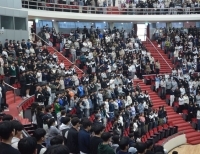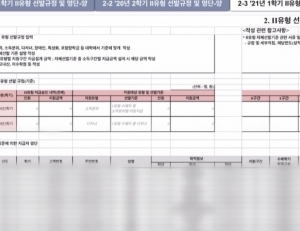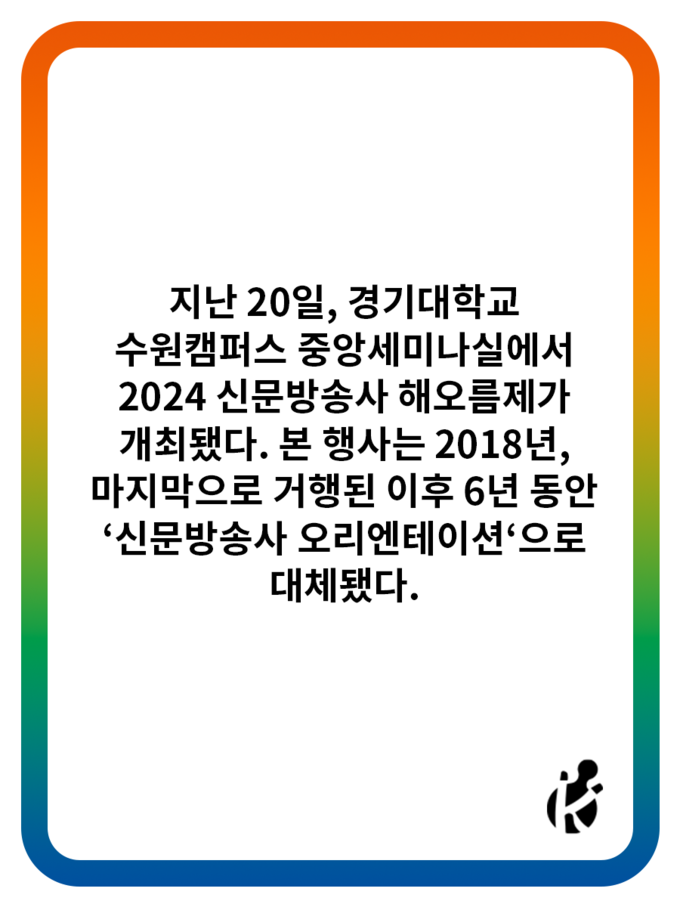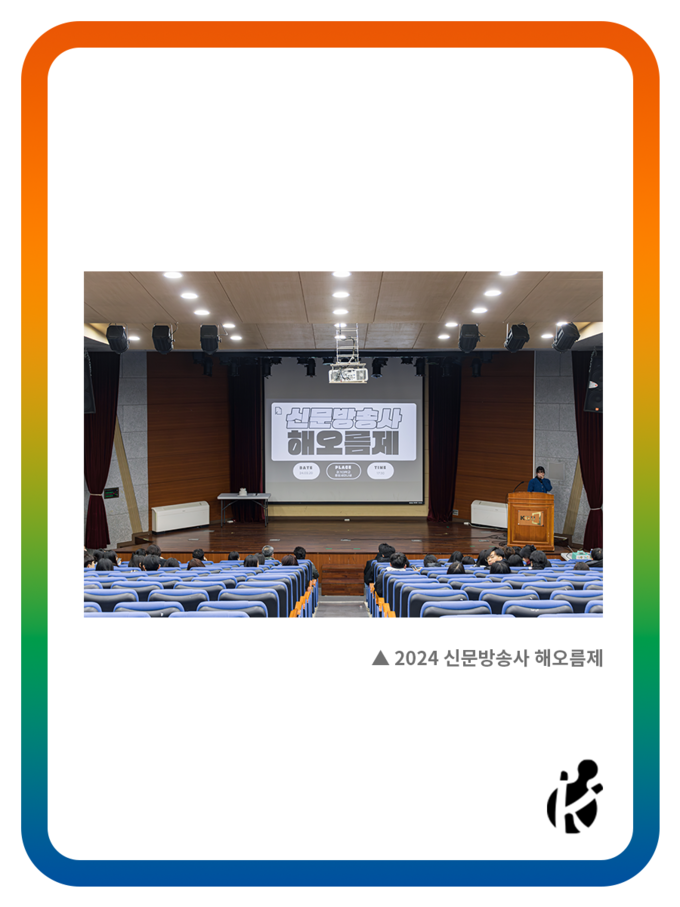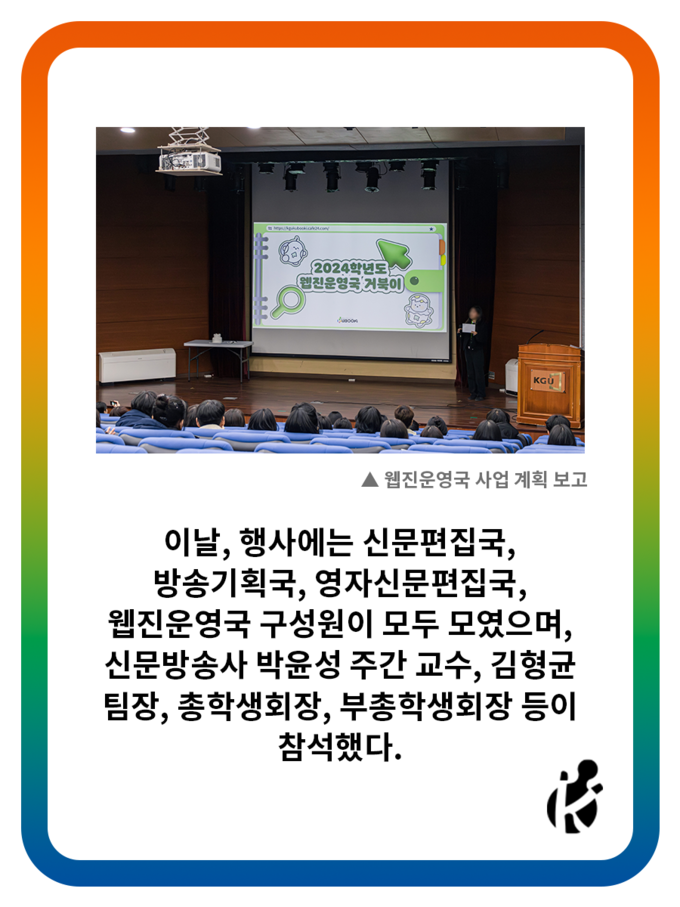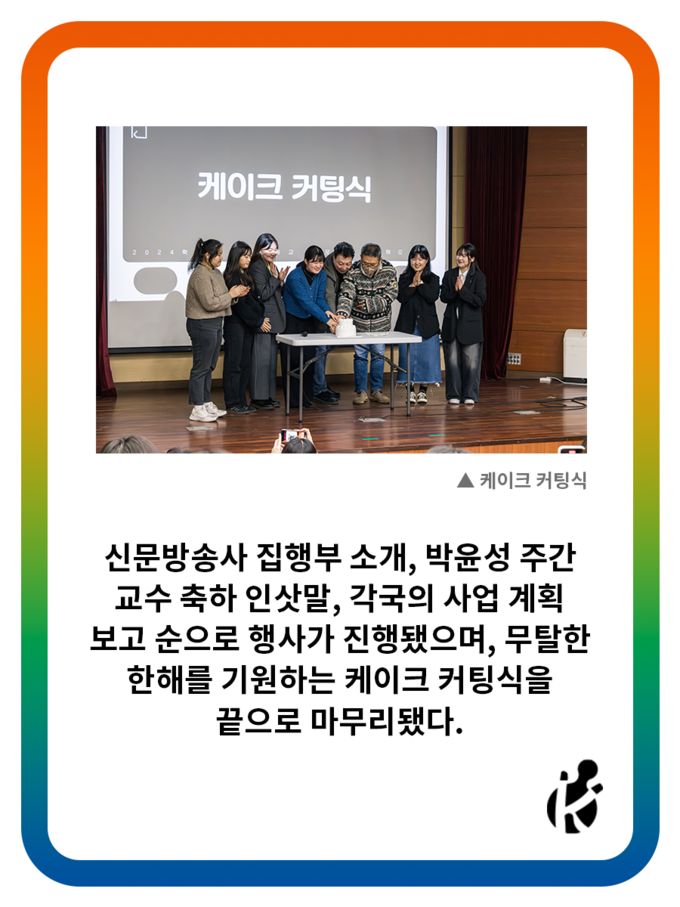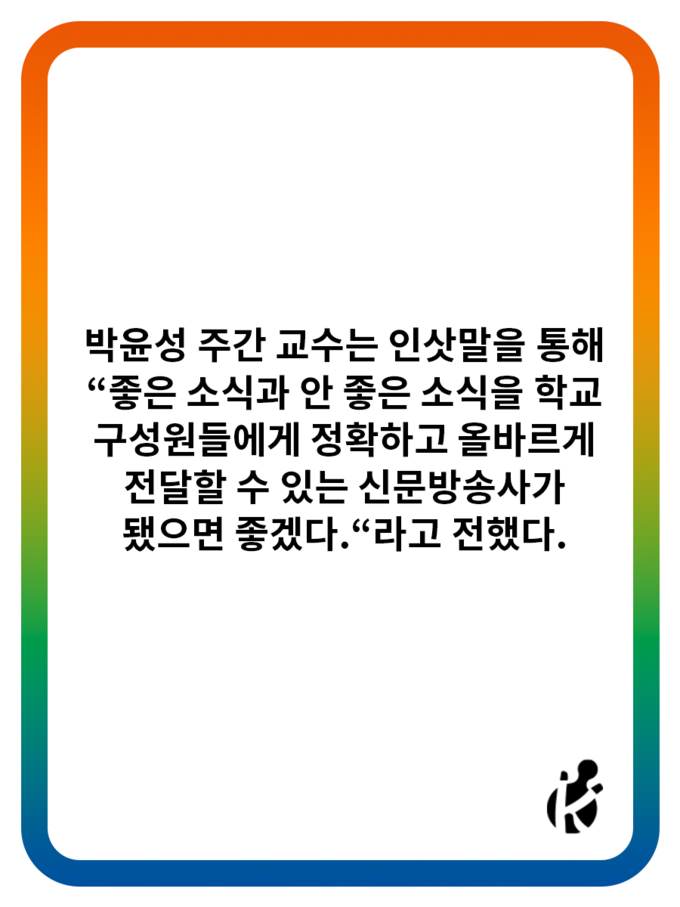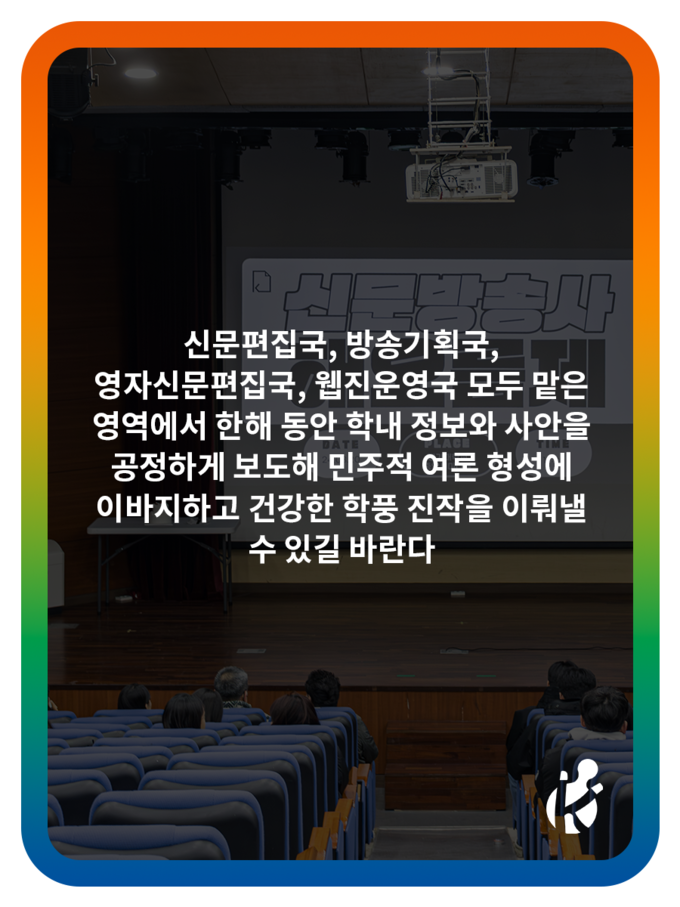Recently, controversy has grown about the regularization of irregular workers at public institutions. In many public enterprises, including the Korea Expressway Corporation, Korea Railroad Corporation and Seoul Metro, they have adopted the regularization of irregular workers as a solution to the problem of discrimination against non-regular workers. However, the lack of systematic policies and standards has caused conflicts between regular and non-regular workers as well as between the company and labor unions. This is a problem that can cause reverse discrimination against youth groups. In response, the Pharos would like to explore the causes and processes of the “regularization of irregular workers” in an effort to eliminate discrimination. Moreover, the Pharos wants to discuss many of the related problems that can arise in society.
The Democratic Party of Korea, which the president, Moon Jae-in, is affiliated with, presented the elimination of discrimination against irregular workers as a pledge in its current term. It is based on the three-way principle of applying the same wage and treatment to equal value labor. The Democratic Party of Korea announced this pledge four years ago during the 20th general election campaison, signifying the importance of resolving social polarization and the problem of irregular workers. On May 12, 2017, at a meeting with the irregular workers working for the Incheon International Airport Corporation, Moon Jae-in, the president, announced that the public sector will take steps to resolve the issue of irregular workers. At that time, more than 80% of the workers at the Incheon International Airport Corporation, which is a public institution, were irregular workers. He announced that he would create a “zero period” of irregular workers and make 810,000 good jobs for people within his term. He said that those engaged in permanent, continuous work, would be given regular employment positions and irregular workers would be allowed only if there were special reasons such as childbirth and taking a leave of absence. The government’s attempt to turn irregular workers into regular workers is due to the fact that the majority of irregular workers are treated unfairly in terms of wages and welfare in Korea. Moreover, they are forced to compete in an unstable job market. Therefore, to begin to rectify this situation, the government seems to have first introduced the transition of irregular workers to regular workers at public institutions.
A classic example is the Incheon International Airport Corporation’s case, in which irregular workers will be converted to regular workers. This incident has led to a huge problem not only in public institutions but also in the whole job market. To solve discrimination against irregular workers, the Incheon International Airport Corporation said on June 21 this year that it will directly hire 2,143 of its irregular workers. The reasons why this issue is problematic are as follows: First the issue of the “total wage system for public institutions” appears to be settled because it has been decided that “public institutions must pay their employees’ wages within a set budget.” Therefore, the Incheon International Airport Corporation will have no choice but to tighten its budget if it does not increase its budget as regular workers are flowing in. This could reduce new employment or reduce wages and welfare levels for existing employees. This shocked many media outlets, citizens, and countless young people who were preparing to get a job.
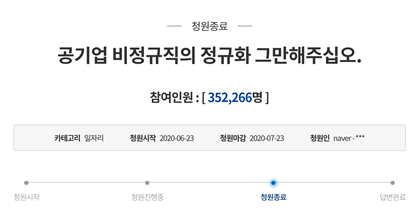
The CheongWaDae national petition “Stop regularizing irregular workers at public companies” pointed out that the transition of irregular workers to regular workers at the expense of regular workers is not fair and that it is not right for everyone to be regularized without any tests. A petition, which has been agreed upon by about 350,000 people, says that the government should stop the reckless regularization of irregular workers because it promotes reverse discrimination. However, some argue that the transition to regular workers should not be denied because of a decrease in new employment and a decrease in employee wages and welfare levels. Otherwise It would seem that the government is neglecting the irregular workers’ problems in order to guarantee job opportunities for job seekers and maintain wages and welfare levels for existing regular workers.
It is claimed that the regularization of irregular workers protects the rights and interests of existing workers. However, it has the double-edged effect of depriving new workers of their job opportunities. This is a problem that cannot be entirely left to companies, and the government’s intervention in the labor market and binding it to an institutional framework is limited and undesirable. This is because the government’s intervention in the labor market has only resulted in side effects that have increased unemployment. As a result, the gap between rich and poor has become entrenched, not bridged. For employers, it is also clear that they are deprived of the opportunity to reduce production costs, thus putting them at a disadvantage in competition with other companies. This is a matter of survival for a company, and if a company fails to survive, workers belonging to the company are naturally forced to lose their jobs.
The nation needs to think about whether such one is a policy that does not harm young people and helps everyone live well. It is necessary to think about whether seeking equality in the workplace is an act of betrayal for those who strive to fight reverse discrimination. Non-regular and contract employees may be less qualified or educated than public employees. However, the careers of irregular workers in the workplace cannot be ignored. We are opposed to the transition to all regular workers. However, the government should stop this reckless transition to regular workers.
74th Cub Reporter•GONG JINYOUNG•wlsdud03520@naver.com
74th Cub Reporter•YOO HYUNGJIN•yoo9428@naver.com
- TAG
-
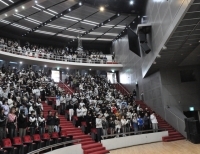 What Happened in KGU? : 수원캠퍼스 학생총회 편
On April 4th, a general meeting of students was held in the Tele-convention center at the Suwon campus. The contents were the same as the general meeting of students in the Seoul campus: the first part was for agenda announcement, the second part was about the Membership Training for whole university, and the third part was simple Q&A time. In the first part, the agendas were all the same as the ones for the Seoul campus, and the result of the ...
What Happened in KGU? : 수원캠퍼스 학생총회 편
On April 4th, a general meeting of students was held in the Tele-convention center at the Suwon campus. The contents were the same as the general meeting of students in the Seoul campus: the first part was for agenda announcement, the second part was about the Membership Training for whole university, and the third part was simple Q&A time. In the first part, the agendas were all the same as the ones for the Seoul campus, and the result of the ...

 [타 대학보 축사] 늘 그랬듯, 묵묵히
[타 대학보 축사] 늘 그랬듯, 묵묵히
 [와이파이] 큰 박스에 달랑 물건 하나, 과대포장 규제 정책 시행은 언제쯤
[와이파이] 큰 박스에 달랑 물건 하나, 과대포장 규제 정책 시행은 언제쯤
 [문화산책] 이 세계는 멋져 보이지만 모두 환상이야
[문화산책] 이 세계는 멋져 보이지만 모두 환상이야
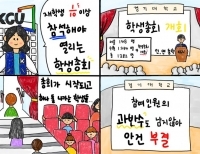 [네컷만화] 학생총회
[네컷만화] 학생총회

 목록
목록






